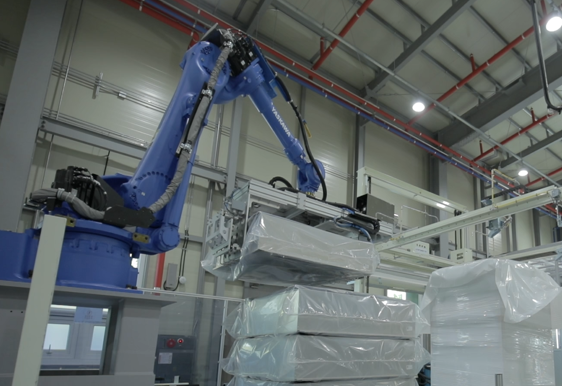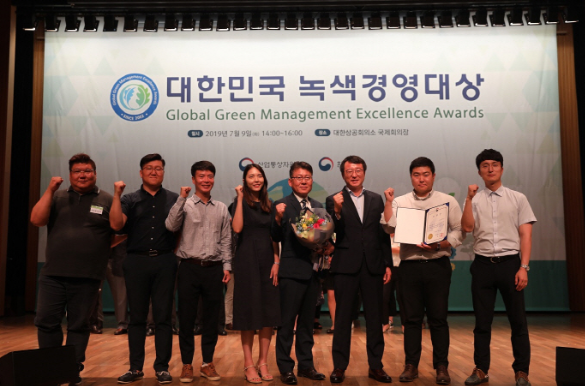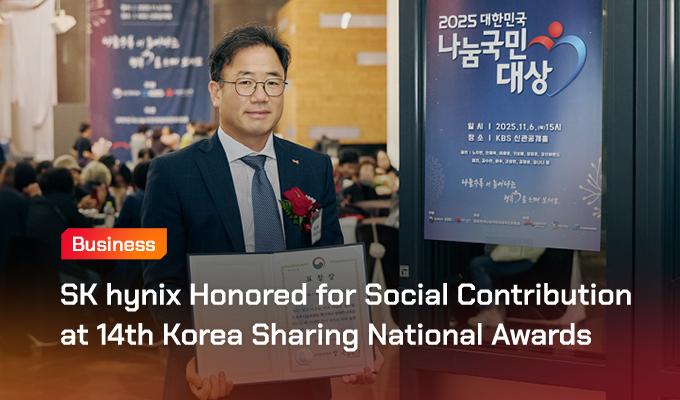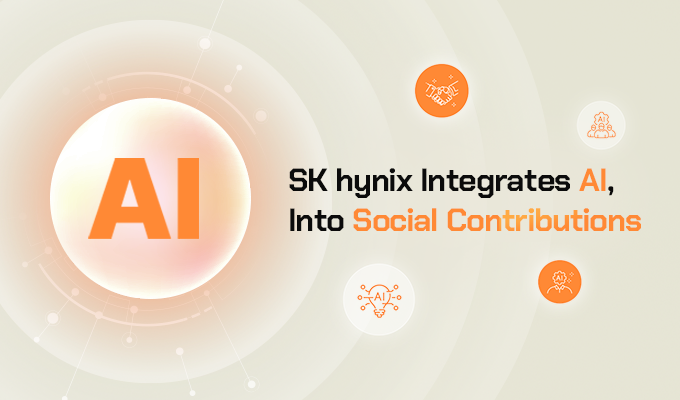At SK hynix, one of our priorities is ensuring that the work that we do and the products that we create are as eco-friendly as possible. As one of the leading companies in the semiconductor industry, we know that the standards we set for production have the potential to set a precedent across the industry.
That’s why, in July 2019, SK hynix was inspired to create the ECO Alliance, a coalition of semiconductor companies committed to building an eco-friendly semiconductor ecosystem. With 33 member companies including Daedeok Electronics, Dongwoo Fine-Chem and Hana Micron, the coalition strives to enact real, industry-wide progress.

Figure 1. Inauguration ceremony of ECO Alliance in 2019
Progress requires accountability, and each member of ECO Alliance is held to mid-to-long term environmental goals that will reduce the impact of their company on the environment.
How It Comes to Life
Working together towards the group’s collective goals, ECO Alliance focuses first and foremost on improving the environmental management capabilities of its member companies. While it might be simple to identify the problem, it can be much more complicated to identify the solution and implement it across workstreams and operations. Proper environmental management systems with the right structures, guidelines and resources can help streamline this process.
So, to help create these structures, and offer peer-to-peer support, ECO Alliance offers environmental consulting, team workshops, bimonthly newsletters, and small group meetings.
Small Group Meetings
Small group meetings of ECO Alliance are held to actively engage members through in-depth discussions and exchanges on relevant environmental issues. It’s an opportunity for our partner companies to connect directly with one another to discuss the topics and situations most important to them and collaborate on finding solutions.
Over the past several months, SK hynix has gathered remotely with ECO Alliance members for virtual meetings in accordance with social distancing protocols.
In March, we attended lectures and engaged in conversations around the ‘integrated environment management system1.’ Typically introduced to overcome the limitations of an incomplete license management system, the goal of this system is to establish an environment management system for business sites where environment and economy can coexist.

Figure 2. Jeonggu Kim, Director of the Headquarter EHS at Eco & Partners
Lecturing for ECO Alliance Members Virtually
In April and May, the theme of our meetings was the total air pollutant management system in the workplace. A lecture was given by Jeonggu Kim, director of the headquarter EHS at Eco & Partners, who spoke about the background and progress of a special law on the improvement of air quality in the air management area introduced on April 3, 2020.
Insights from Our ECO Alliance Partners
Veolia Korea: Environmental pollution poses a serious danger to the planet, and companies around the world are being asked to use water and resources more carefully. In order to learn about water management, we chatted with Veolia Korea2, a water management company with a history of 167 years.
“Today, humanity uses a lot of water and generates as much wastewater. The pollutants in the wastewater are now beyond the level of natural purification. Therefore, if the used water is not properly disposed, all of humans, animals, and plants will be in danger, so it is inevitable and critical to go through proper wastewater treatment and secure drinking water.”
Shinsung E&G: Shinsung E&G is a high-tech company that recently established a smart factory solution in Yongin, South Korea. SK hynix talked with Chul-soo Shin, director of the factory in Yongin, about how Shinsung E&G developed and sustains the smart factory.
“Building a smart factory can also be called building a smart system. What many people misunderstand is that a smart factory is simply an automated facility. In reality, a smart factory is more about establishing an infrastructure that can automatically collect all data created in all areas of the manufacturing process in real time.”
“Additionally, our Yongin factory operates solar power generators to ensure power efficiency; with the intelligent micro-grid system, these generators operate flexibly while taking a large amount of information in consideration, including our production plan, facility burden, and weather forecast. As a result, this solar power generators provide the Yongin factory with 40% of the power it requires.”
Komico: Starting as the first company in Korea to commercialize semiconductor parts cleaning and coating business in 1996, Komico is now a global leader in this field of industry. Recently, the company improved waste reduction in its operations, having reduced about 83% of waste in one of its plants between 2015 and 2018.
“Our efforts to solve environmental problems shines most when all members at our site devotes in the same direction. As in the case of Komico’s waste reduction, if ECO Alliance member companies work together to solve environmental problems step by step, we expect that the establishment of an eco-friendly semiconductor ecosystem will be accelerated a little faster.”

Figure 5. Komico’s Advanced Waste Compacting Facility
Looking Ahead
SK hynix will continue to consolidate these relationships, deduct applicable eco-management solutions, and develop collaborative programs among ECO Alliance member companies even further for improved environment management.
SK hynix will work together with all of its ECO Alliance partners to ensure that the eco-friendly ecosystem continues to grow and thrive through smooth communication, information sharing and knowledge exchange among member companies.
1Integrated environment management system: A method that is carried out on a site-by-business basis to manage the effects of media-to-media compared to environmentally-related permits previously managed for each medium, such as air, water, and soil.
2The Korean branch of French wastewater management company Veolia which originated in middle 19th century under the order of Napoleon III











